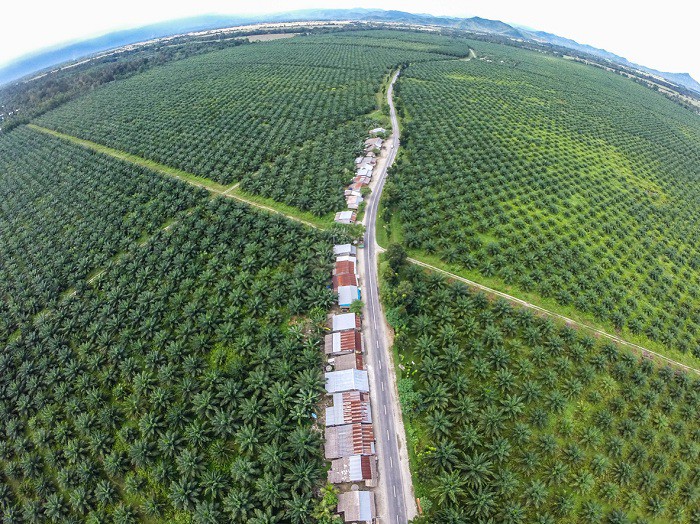July 11, 2017: Action taken by HSBC, which triggered an investigation into the subsidiary of one of its own clients in the palm oil sector, could result in saving thousands of hectares of primary rainforest in the heart of Papua, Indonesia.
It has called for an investigation by the Roundtable on Sustainable Palm Oil (RSPO), an industry body, into a charge that Noble Plantations, part of the Noble Group, is preparing to clear 18,000 hectares of primary forest for palm oil.
It follows Greenpeace and the Environmental Investigation Agency writing to four banks (HSBC, ABN Amro, ING and Rabobank) which had recently helped set up a new $750m bond issued by Noble Group on March 9, 2017. The NGOs presented the banks with evidence to substantiate their claims about the intentions of Noble Plantations.
The company has been ordered by RSPO to stop work until the investigation is complete.
This is the first time a major bank has requested an RSPO investigation into one of its clients.
All four banks have palm oil policies that prohibit funding of companies destroying primary or High Conservation Value (HCV) forest, with HSBC bowing to Greenpeace and public pressure to produce a stronger ‘no deforestation’ policy in February 2017.
Jamie Woolley from Greenpeace UK said: “After years of turning a blind eye, the financial sector is finally starting to take a tougher line on rogue palm oil companies. HSBC’s decision to do the right thing and trigger an investigation into its own client could save thousands of hectares of pristine rainforest. If other banks are serious about stopping the destruction of rainforests for palm oil, they need follow suit and take responsibility for their clients’ behaviour.”
Audrey Versteegen from the Environmental Investigation Agency said: “The RSPO now has a canvas of 18,000 hectares of primary forest in Papua on which to sketch out the meaning of ‘certified sustainable palm oil’. Noble’s destructive plans must be sent back to the drawing board and the assessors, upon whose flawed environmental audits these plans were based, rooted out of RSPO certification.”
Like many other companies involved in the palm oil sector, banks rely on the RSPO’s standards to reduce their exposure to destructive companies, but countless investigations by civil society organisations have shown that the RSPO’s system is not working. RSPO safeguards are routinely and widely flouted by members, resulting in massive deforestation and conflict with local communities.
NGOs are calling on banks to take responsibility for their clients’ behaviour, and for the RSPO to overhaul its regulations, known as the Principles & Criteria, to bring them into line with the ‘no deforestation, no peat, no exploitation’ standards adopted by most major brands and commodities traders.

